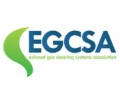
[ad_1]

The CSA welcomes the new comprehensive ecotoxicity study by DHI which gives open loop scrubbers the all-clear.
A new study by the Danish Hydraulics Institute (DHI) shows that in a standard OECD port environment and in a high-traffic seaway that the operation of open loop Exhaust Gas Cleaning Systems (“scrubbers”) does not harm the marine environment.
DHI is an independent, international research organization headquartered in Denmark that has special competence in the fields of water, environment and health. They are well-known in the marine industry for testing and approval of ballast water systems and other risk assessments of vessel effluents. All of their testing and reporting in this new study was conducted in accordance with ISO standards and IMO (GESAMP) recommendations.
After collecting wash water discharges from four ships operating open loop scrubbers in northern Europe, the DHI study uniquely conducted whole effluent toxicity (WET) tests with representatives of the marine food chain, including species of algae, crustaceans and fish. The study then calculated predicted environmental concentrations (PEC) of the scrubber discharge water with MAMPEC modelling before completing environmental risk assessments for three significant scenarios: GESAMP Model Harbour, OECD Model Harbour, and OECD Shipping Lane. For all three, at no stage did the concentrations of scrubber water into the environment exceed the predicted no-effect concentration (PNEC), meaning that no further assessment of toxic effects to the aquatic environment is considered necessary.
According to Christopher Fee, Vice Chairman of the Clean Shipping Alliance: “we want to direct attention to this new DHI study, which we believe sets a new high standard for scientific rigor in ecotoxicity studies related to operations of open loop scrubbers. The comprehensive approach, standard protocols and very conservative assumptions used by DHI – such as modelling all ships as equipped with scrubbers, although currently only about 4-6% of ships actually are – provide additional credibility to the these very positive results. It’s an important addition to the scientific literature.”
The study is freely available on the EGCSA website (www.egcsa.com).
Source: EGCSA
[ad_2]
This article has been posted as is from Source